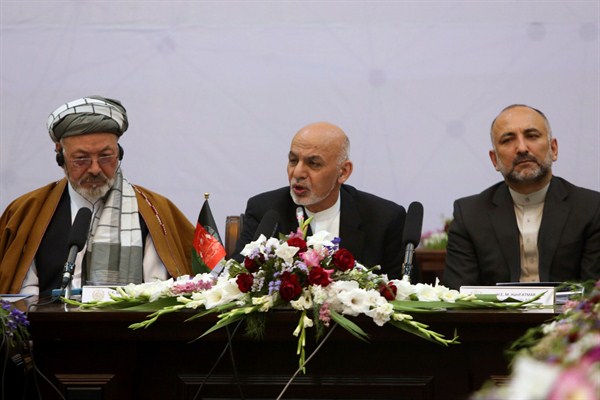With the Trump White House abdicating decision-making authority over the Afghan war to the Pentagon, it’s only a matter of time until the United States escalates troop levels in Afghanistan again. The security situation in the country is dire, with the Taliban in control of more territory than at any point since the 2001 invasion and momentum on its side. The situation for Afghan civilians remains terrifying, with a spate of recent attacks highlighting how little progress has been made in America’s longest war.
If things weren’t bad enough, Afghanistan is also in the grips of a festering political crisis, as the national unity government frays at the seams over the lack of trust between President Ashraf Ghani and CEO Abdullah Abdullah. To bring the war in Afghanistan, and U.S. involvement in it, to a close under reasonably tenable circumstances, Washington will need to pressure Kabul, Pakistan and the Taliban to negotiate a political settlement. That can only be done if there is a legitimate government in Kabul.
In September 2014, former Secretary of State John Kerry brokered an agreement that essentially papered over the heavily rigged 2014 presidential contest and led to the formation of the Ghani-Abdullah government. The slipshod coalition was doomed from the start, as each side accused the other of electoral malfeasance, and both were expected to prioritize the interests of their respective ethnic-group constituencies. Sure enough, Ghani has been accused of packing the government with his fellow Pashtuns to the detriment of the Tajiks, whose interests Abdullah represents, and other ethnic groups.

